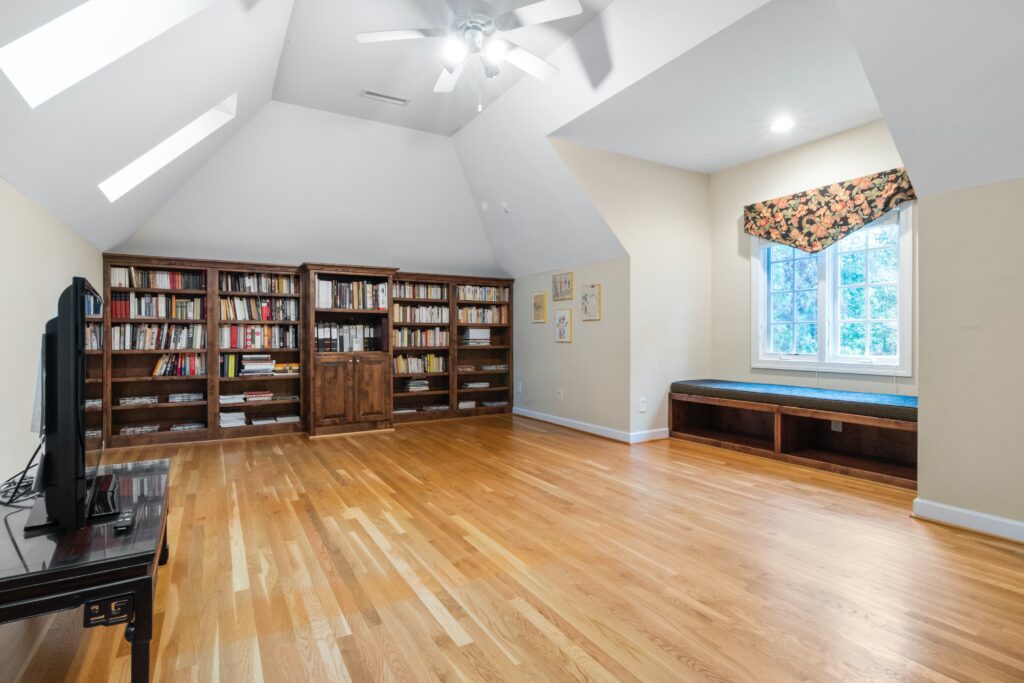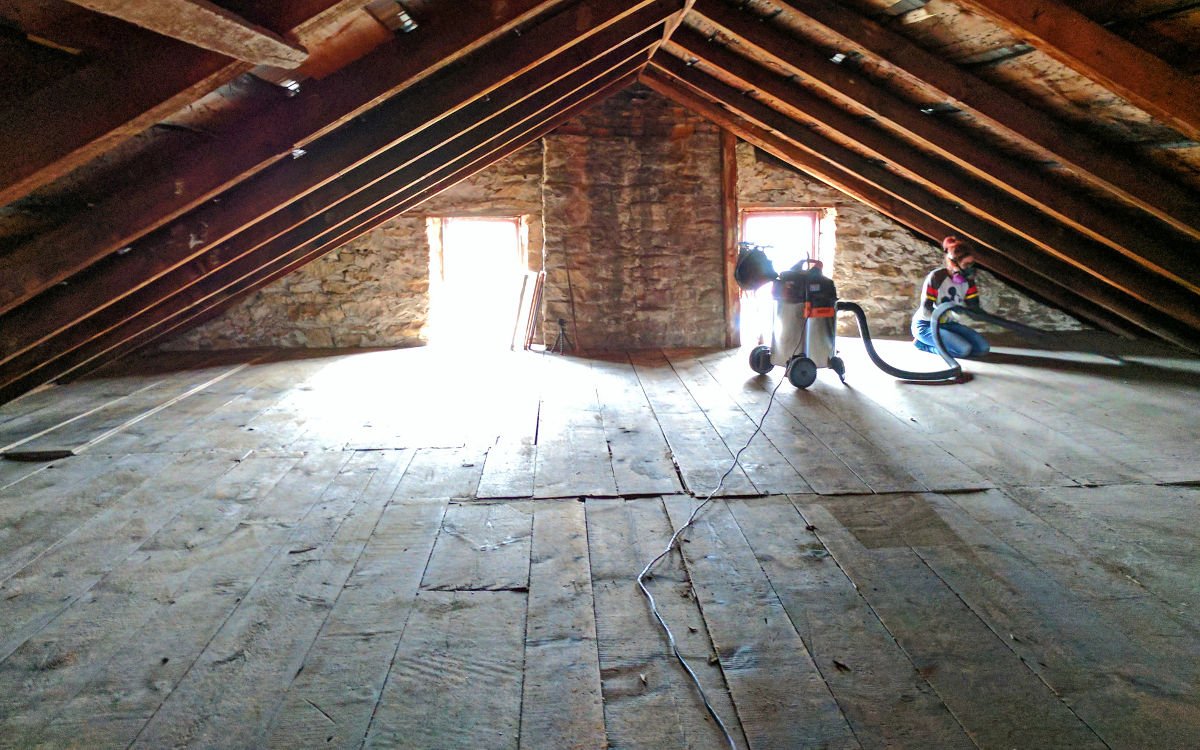In recent years, the popularity of solar panels has skyrocketed, particularly among homeowners and real estate developers. This surge in interest is largely due to the numerous benefits solar panels offer, such as reducing energy costs and contributing to a greener environment. However, one of the crucial aspects often overlooked is attic solar panel maintenance. Proper maintenance not only ensures the longevity of the panels but also maximizes their efficiency.
Understanding the importance of attic solar panel maintenance is vital for homeowners and real estate developers. By keeping solar panels in top condition, you are investing in a sustainable future while also enhancing the value of your property. In this article, we will delve into the essential aspects of maintaining attic solar panels and how they can save you money in the long run.

Why is Regular Maintenance Important?
Regular maintenance of attic solar panels is crucial for several reasons. Firstly, it ensures that the panels are operating at their optimal efficiency. Dust, debris, and other environmental factors can impede the performance of solar panels, leading to reduced energy output. Moreover, consistent maintenance helps in early detection of potential issues, such as wiring problems or physical damage, which could otherwise result in costly repairs.
Benefits of Attic Solar Panel Maintenance
There are numerous benefits to maintaining your attic solar panels. Some of the most significant advantages include:
- Maximized Efficiency: Regular cleaning and inspection ensure that the panels receive maximum sunlight, leading to higher energy production.
- Extended Lifespan: Well-maintained panels are less prone to damage, which extends their lifespan and provides a better return on investment.
- Cost Savings: By preventing damage and ensuring efficiency, you save money on potential repairs and utility bills.
Conducting Routine Inspections
Conducting routine inspections is an integral part of attic solar panel maintenance. These inspections help in identifying any potential issues that could affect the performance of your solar panels. Ideally, inspections should be carried out at least twice a year, preferably in spring and autumn when weather conditions are mild.
What to Look for During Inspections
When inspecting your attic solar panels, there are several key areas to focus on:
- Physical Damage: Check for cracks, scratches, or any signs of physical damage on the panels.
- Wiring and Connections: Ensure that all wiring and connections are secure and free from corrosion.
- Shading: Identify any new shading sources, such as overgrown trees, that could affect panel efficiency.
Cleaning Your Attic Solar Panels
Cleaning is a fundamental aspect of attic solar panel maintenance. Dirt, dust, and bird droppings can accumulate on the surface of the panels, reducing their ability to absorb sunlight. Regular cleaning helps maintain optimal performance and extends the life of your solar panels.
How to Clean Attic Solar Panels
Cleaning attic solar panels is a straightforward process. Here are some tips to ensure effective cleaning:
- Use a soft brush or sponge to gently remove dirt and debris from the surface.
- Avoid using abrasive materials that could scratch the panels.
- Use a mild detergent mixed with water for stubborn stains, and rinse thoroughly with clean water.
- Ensure that the panels are completely dry before checking for any remaining debris.
Addressing Common Issues
While regular maintenance significantly reduces the likelihood of issues, some problems may still arise. Addressing these issues promptly is crucial to maintaining the efficiency of your attic solar panels.
Common Problems and Solutions
Here are some common issues that may affect attic solar panels and their solutions:
- Loose Connections: Check all connections and tighten any loose wires to prevent energy loss.
- Damage from Extreme Weather: Inspect panels for damage after extreme weather events and replace damaged components if necessary.
- Corrosion: Regularly inspect for signs of corrosion and clean affected areas with a suitable cleaner.
Hiring Professional Maintenance Services
While some aspects of attic solar panel maintenance can be handled by homeowners, hiring professional services ensures thorough inspections and cleaning. Professionals have the expertise and equipment to identify and solve issues that may not be apparent to the untrained eye.
When to Call a Professional
Consider hiring a professional if:
- You notice a significant decrease in energy output despite regular cleaning.
- There are visible signs of damage that require specialized repairs.
- You lack the time or equipment to conduct thorough inspections and cleaning.
DIY Maintenance Tips
If you prefer to handle attic solar panel maintenance yourself, there are several DIY tips to keep in mind:
- Regularly trim trees and bushes to minimize shading on the panels.
- Use a garden hose to rinse off dust and debris from the panels.
- Inspect the panels and wiring after storms or strong winds.
Seasonal Maintenance Considerations
Seasonal changes can affect the performance of attic solar panels. Adjusting your maintenance routine to account for these changes ensures consistent efficiency throughout the year.
Spring and Summer
During spring and summer, focus on cleaning and removing any debris that may have accumulated over winter. Ensure that no new shading sources, such as growing trees, are affecting the panels.
Autumn and Winter
In autumn and winter, ensure that the panels are free from leaves and snow. Regular inspections are essential to check for damage caused by frost or ice.
The Role of Technology in Maintenance
Technology has significantly improved the way we maintain attic solar panels. Smart monitoring systems allow homeowners to track the performance of their panels in real-time, making it easier to identify issues and schedule maintenance.
Benefits of Monitoring Systems
Some benefits of using monitoring systems include:
- Real-time data on energy production and panel efficiency.
- Alerts for any performance issues or irregularities.
- Remote monitoring capabilities, allowing for convenient management of solar panels.
Integrating Solar Panels with Other Home Systems
Integrating attic solar panels with other home systems, such as HVAC and insulation, can further enhance their efficiency and provide additional energy savings. By optimizing these systems, homeowners can create a more sustainable and energy-efficient home.
Optimizing HVAC Systems
Proper attic HVAC ductwork is crucial for maintaining a comfortable home environment while maximizing the benefits of solar panels. Ensure that ductwork is well-insulated and free from leaks to prevent energy loss.
Enhancing Attic Insulation
Improving attic ceiling insulation can also boost the efficiency of solar panels by reducing the overall energy consumption of your home. A well-insulated attic helps maintain a stable indoor temperature, reducing the load on heating and cooling systems.
Conclusion
Proper attic solar panel maintenance is essential for maximizing the efficiency and lifespan of your solar panels. By conducting regular inspections, cleaning, and addressing any issues promptly, homeowners and real estate developers can ensure that their investment in solar energy pays off in the long run. Whether you choose to handle maintenance yourself or hire professional services, staying proactive is the key to reaping the full benefits of solar power.

FAQ Section
How often should I clean my attic solar panels?
It’s recommended to clean your attic solar panels at least twice a year, ideally in spring and autumn. However, the frequency may vary depending on your local weather conditions and the amount of debris accumulation.
Can I perform attic solar panel maintenance myself?
Yes, homeowners can perform basic maintenance tasks such as cleaning and inspections. However, for more complex issues or if you’re unsure, it’s best to hire a professional to ensure thorough maintenance.
What are the signs that my attic solar panels need maintenance?
Common signs that your attic solar panels may require maintenance include decreased energy output, visible damage to the panels, loose or corroded connections, and the presence of debris or shading on the panels.
This article contains affiliate links. We may earn a commission at no extra cost to you.



